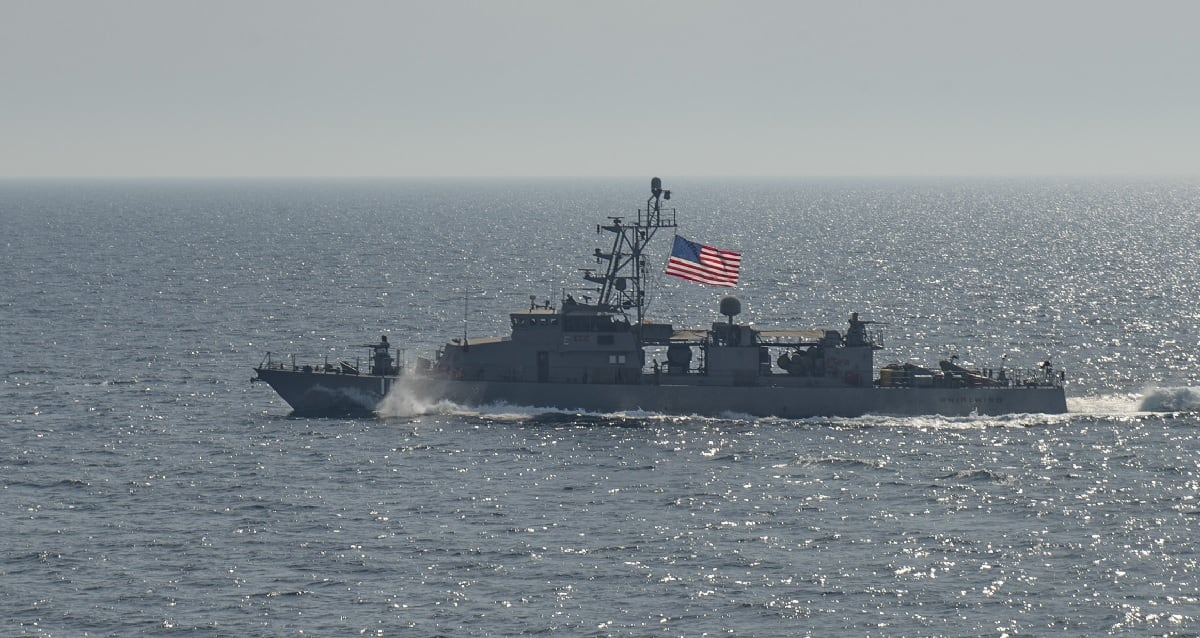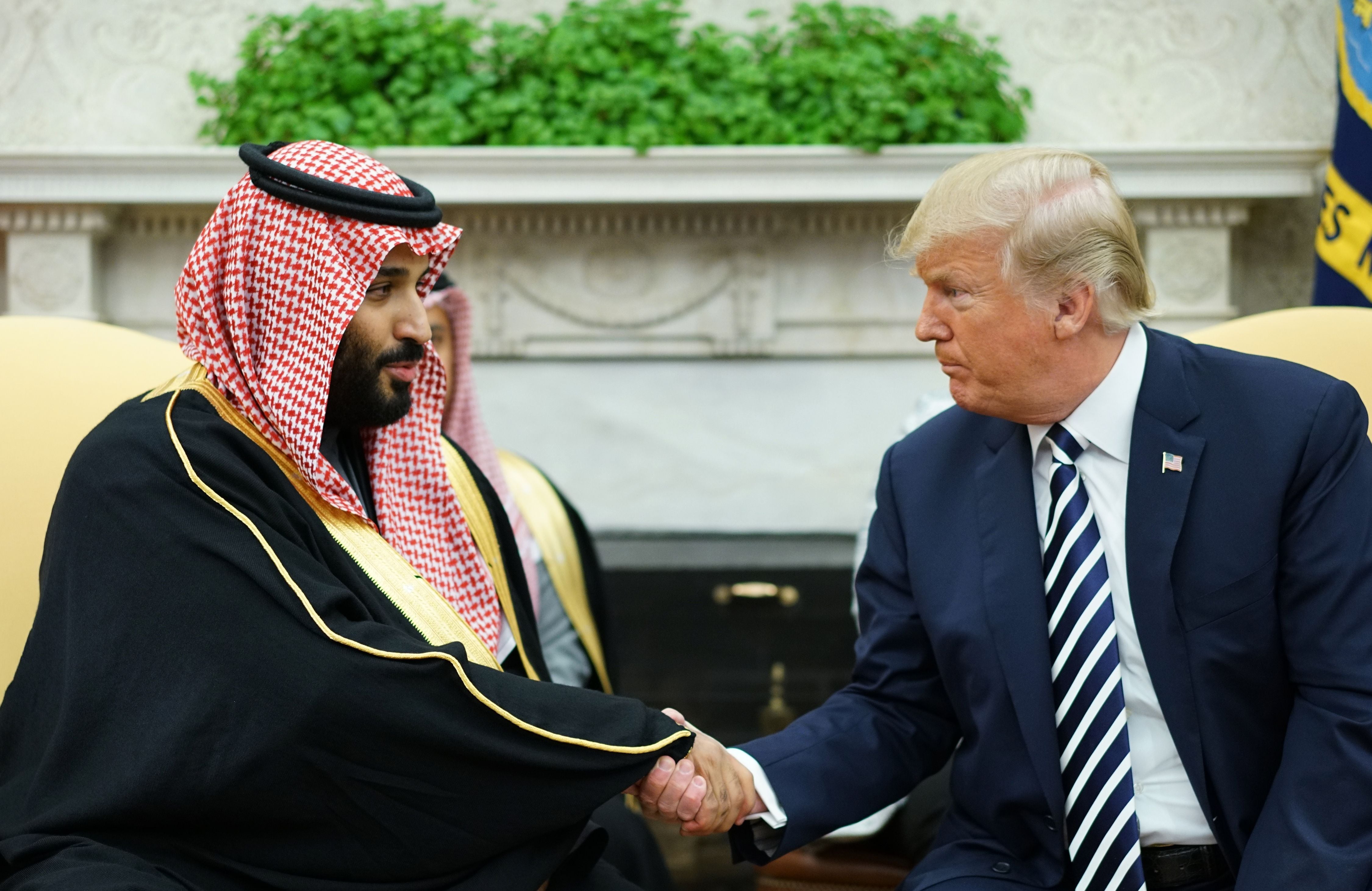WASHINGTON ― Republican senators on Tuesday defended President Donald Trump’s pressure campaign against Iran after the U.S. announced 1,000 more troops will deploy to the Middle East.
Senate Majority Leader Mitch McConnell, R-Ky., said he backs the deployments and blames Iran for an attack on two oil tankers near the strategic Strait of Hormuz. The risk of conflict is being driven by Tehran, he said.
“It’s very clear the administration is not trying to start a war with Iran," McConnell said. “But we’ve learned over the years that Iran’s malign behavior is not best dealt with by turning the other cheek. I think what the administration is prepared to do is engage in measured response against the striking out that Iran is doing once again.
"It’s important to remember the IEDs [improvised explosive devices] they manufactured killed a lot of Americans in Iraq and Afghanistan. Their mischief has been on display off and on for 30 years. I think the administration is handling it correctly.”
On Tuesday, Secretary of State Mike Pompeo traveled to U.S. Central Command headquarters in Florida to meet with Marine Gen. Kenneth McKenzie Jr., CENTCOM’s leader, and Army Gen. Richard Clarke, head of U.S. Special Operations Command, about possible response options for Iranian aggression.
Pompeo said the new troop deployments are designed “to make sure that we were in a position ... to convince the Islamic Republic of Iran to prove we are serious and to deter them from further aggression” in the region.
“If (Iran) makes a decision to go after an American or an American interest, or to continue to proliferate its nuclear weapons program … I know that the soldiers, sailors, airmen and Marines are ready to respond,” he added.
RELATED

Lawmakers discussed the possibility of a crippling military strike on Iran when Undersecretary of State for Political Affairs David Hale briefed Senate Republicans at the Capitol on Tuesday.
According to Sen. Lindsey Graham, R-S.C., that notional assault would destroy Iran’s ability to refine oil, and it would target Iranian naval forces that comprise “the chief military force against tankers and our vessels.”
“I’m talking about blowing it up,” Graham said.
“What Iran is about to do is make a fatal mistake,” Graham said. “Nobody’s talking about invading Iran or an Iraq war, but we are talking about a military response on the table that would cripple their ability to continue to do this."
“You can’t have provocative acts by a rogue regime go unanswered,” he added. “Their ability to refine oil is the lifeblood of their economy. If they continue to disrupt oil supplies and create havoc for other nations, they should put their refineries on the target list.”
On Tuesday, several Democrats said military action would require an authorization vote by Congress, absent an attack on America or its people. Graham did not agree.
“I think there are plenty of laws on the books that would allow our president to defend our forces, to defend navigation of the seas,” Graham said. “The kinetic operations we are talking about are not land invasions, but strategic strikes against economic interests and [Iran’s] military capability to harass ships.”
Exiting the briefing, Senate Armed Services Committee Chairman Jim Inhofe, R-Okla., stopped short of advocating a military strike against Iran, but said the new troop deployments showed “we’re prepared and we’re not a country that’s going to let someone push us around.”
Senate Minority Leader Chuck Schumer, D-N.Y., said Tuesday that Democrats declined an invitation to be briefed and called on Trump to explain to a war-weary public what his administration intends to achieve.
“The president must make his pitch to the nation instead of another closed-door meeting with senators,” Schumer said in floor speech Tuesday. “As the commander in chief, he owes that to every American but especially to the American service members and their families that he’s sending into the Middle East.”
On Monday, the U.S. administration found itself in the awkward position of demanding that Iran comply with a nuclear accord that the president derided as the worst deal in history ― the 2015 agreement known formally as the Joint Comprehensive Plan of Action.
The administration’s high-pressure campaign has left it with few options, said Senate Foreign Relations Committee ranking member Bob Menendez, D-N.J. The administration’s goal should be to ensure Iran has no path to nuclear weapons and curb its other malign activities.
“But if your maximum-pressure campaign has no release, you have a pressure cooker that explodes,” Menendez said. “We need to understand that there needs to be maximum diplomacy. With our allies, we need to engage Iran to get them back to the table and get a negotiation underway.”
Congress, meanwhile, should advocate diplomacy, seek information and “make clear that only Congress can authorize military action, just in case the administration is thinking that way.”
RELATED

Iran has also placed the administration in a dilemma because it is using asymmetric tactics to push back, without a head-on provocation, said Senate Armed Services Committee ranking member Jack Reed, D-R.I. Reed also serves on the Senate Intelligence Committee.
“It appears all the targets have been non-American targets to date. They’re making a point, but they’re not making an attack against [U.S. forces],” Reed said. “I think they’re trying consciously to avoid a red line. ... The question is: Will we get more aggressive in terms of what we’ll allow or disallow?”
If it comes to a third war, Senate Minority Whip Dick Durbin, D-Ill., said Trump would have a tough time obtaining authorization from the Democratic-led House. In the Senate, some number of Republicans would join with the Democratic minority to object.
“You have a number of Republican senators who believe in the basics of the Constitution and are willing to vote that way,” Durbin said. “And you’re in an election cycle. Let’s be honest: I think people are sensitive to the reality the American people are not looking for us to invade another Muslim county in the Middle East.”
The Associated Press contributed to this report.
Joe Gould was the senior Pentagon reporter for Defense News, covering the intersection of national security policy, politics and the defense industry. He had previously served as Congress reporter.
Leo covers Congress, Veterans Affairs and the White House for Military Times. He has covered Washington, D.C. since 2004, focusing on military personnel and veterans policies. His work has earned numerous honors, including a 2009 Polk award, a 2010 National Headliner Award, the IAVA Leadership in Journalism award and the VFW News Media award.







